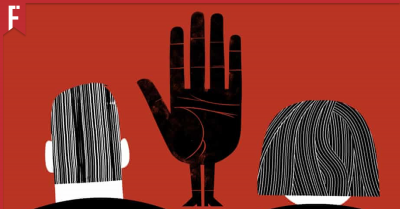
Last week, we talked about some of the common coronavirus myths being circulated through social media. Since then, several more myths have appeared – including one stemming from a dubious video where a “magic baby” talks about how eating boiled eggs can cure Covid-19. This April Fools Day, we’re going to show you how to avoid being fooled by fake news.
So How Can We Avoid Fake News?

Unless you’re totally cutting yourself off from the Internet, I’m sure you’ve seen some suspicious posts being shared on social media. Below are a few simple steps you can take to identify whether or not something is fake news:
1) Who is Posting This Information?
Before you click that ‘share’ button, check the account. Does it seem like a real person, or could it be a bot? Look at the profile picture – if there is no picture or if it’s something generic like a sunset or flower, that could be a red flag. Real life isn’t like a movie – if someone is sending you information from an anonymous account, they’re probably trying to scam you.
Aside from that, pay attention to the age and posting history of the account. After all, a week-old Twitter account that has mostly been posting memes is unlikely to have access to any serious information.
2) Where Are They Getting This Information From?
Just because your uncle heard it from his friend’s ex-girlfriend whose cousin works in a hospital, doesn’t necessarily mean that it’s true. A good source should always have a reputable name to back it up. Is the post getting information from a news outlet, a politician, a medical expert, or is it all from “a friend of a friend”?
Nowadays, anyone can just sit down and create their own website in an hour or two, so it’s important to double check whether it’s actually a credible person or organisation or something that’s just been made up to sound official. An article from a blog known for posting wild conspiracy theories should not be taken as seriously as an article posted on a legitimate news website.
Note: The key word here is “credible”. Even if they’re both real people, there’s a big difference between a legit doctor offering medical advice and some shady conman trying to sell some self-declared “miracle cure”.
3) Look For Evidence
Even if you trust the source, it’s always a good idea to look through the information before you share. Are there any links, pictures, videos, etc. that are attached as proof? Or is it just all completely text based? For pictures, you can use reverse Google Image search to check whether the photo was taken from somewhere else.
In an age where anything and everything can be digitally edited, even things like screenshots of emails and text messages aren’t really trustworthy. If there’s a link, check to see where it goes – is it a real news website, or is it some dodgy conspiracy theory site filled with garbage and porn ads?
4) Read Through the Post
Does the wording sound off – almost like it’s been run through Google Translate a few times? Does it sound outlandish or too good to be true? Is the post filled with buzzwords, with capitalised words and exclamation points everywhere?
Often, fake news posts will throw in a few real facts in order to make themselves seem more credible, so just because the post has one good point doesn’t mean that it’s all 100% accurate. Don’t be fooled – if you have thoughts like “Eh, are you sure this is true?” or “Wow, this looks kinda far-fetched”, it’s probably better to trust your instincts and avoid sharing until you can verify.
5) Verify the Story’s Authenticity
So how do you verify a post? One easy way is to check legitimate news websites for the latest updates and information. After all, if something is big enough, it will be mentioned on trustworthy news websites like BBC and Reuters. If in doubt, use a hoax-busting website such as Sebenarnya.my. Established by Malaysian Communications and Multimedia Commission (MCMC) to counter misinformation, this website hunts down fake news stories circulating on social media.
The Dangers of Fake News

With so much info being passed around on social media like Facebook and Whatsapp, it’s becoming harder then ever to keep track of what’s really going on. Unfortunately, many people are still underestimating the danger of fake news.
Whether it’s well-meaning but naive relatives touting “miracle cures” passed on from their friends or actual scam artists trying to make a quick buck, fake news has been circulating throughout the world – sometimes with unfortunate results.
Just yesterday (March 31), the National Security Council (NSC) debunked several fake news posts, including a video recording claiming that there was a “commotion” at a supermarket in Johor.
“This was actually a video recording of suspects looting several supermarkets which happened in a few districts in the United States,” the NSC said. It also denied several other allegations such as a viral message claiming that anyone caught leaving their houses would receive a RM1,000 fine.
The MCMC has been hard at work trying to catch those creating and spreading fake news, financial scams, and seditious postings. As of last Friday (March 27), they are looking into no less than 40 cases of fake news, out of which 5 are already on track to prosecution under Section 505(b) of the Penal Code. These cases include not only fraudulent medical advice but also con men trying to make a quick buck and racists attempting to stir up trouble.
“Let me warn those involved that we are watching and action will be taken.” said communications and multimedia minister Datuk Saifuddin Abdullah.
False Information, Real Punishment

Working closely with police investigators, Saifuddin has promised stern action against those spreading fake news, adding that anyone who deliberately caused public fear or anxiety could be jailed up to two years, fined, or both, if convicted under Section 505(b) of the Penal Code.
“MCMC and the police, via the Cyber Crime Special Committee, will continue to tackle the spread of fake news especially on COVID-19 that could confuse the rakyat and spark disharmony,” he said.
Due to the Movement Control Order (MCO), most of us are currently stuck at home. While some of us are fortunate enough to have comfortable homes and enough savings to handle a few weeks without going out, many others are worried about how they’re going to survive if the MCO drags on for too long. They are desperately searching for any information that can end the COVID-19 pandemic and let them return to their normal lives sooner rather than later.
In this type of situation, it is more important than ever before for us to be careful about the things we post. As responsible social media users, we need to do our part to avoid spreading fake news – not only because it might lead to punishment, but also out of compassion for those around us.
For more information, you can follow our Twitter to keep up to date on all the latest news and events. In the meantime, click HERE to read some of this week’s top COVID-19 related news.








